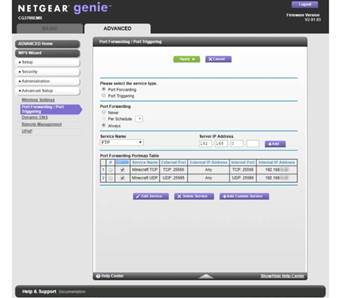Phones
accumulate digital clutter with every photo taken, app downloaded, and file
saved. This gradual buildup, combined with normal hardware wear, inevitably
impacts how quickly your device responds. You might notice apps taking longer
to open, animations becoming jittery, or the keyboard lagging behind your taps.
It is a frustratingly common experience that can make even simple tasks feel
like a chore. In this article, we will explore the practical and
easy-to-understand reasons behind this slowdown and provide actionable steps to
help restore your phone's responsiveness.

Free Up Storage Space
Delete Unused Apps and Old Files
A
nearly full storage drive is one of the biggest culprits behind a sluggish
phone. When your device runs low on space, the operating system struggles to
find room for temporary files and system processes, which severely impacts
performance. Start by going through your list of applications and uninstalling
anything you haven't used in the past few months; these apps are just taking up
valuable real estate. Next, dive into your photo gallery and download folders
to remove old screenshots, duplicate images, and videos you no longer need. You
will be surprised at how much smoother your phone operates once you free up
even a few gigabytes of space, giving the system the room it needs to breathe
and function properly.
Clear Cached Data for Individual Apps
Apps
store temporary data, known as cache, to help them load information faster on
subsequent uses. Over time, this cached data can become corrupted or grow so
large that it actually slows the app and the phone down instead of speeding it
up. You do not need to clear the cache for every app, but focusing on ones you
use heavily, like social media or web browsers, can yield significant
improvements. This process is simple and can be done through your phone’s
settings in the application management section, and it will not delete your
personal login information or saved preferences. Regularly clearing this
temporary data is like giving your apps a quick spring cleaning, helping them
run more efficiently.
Keep Software and Apps Updated
Ignoring
update notifications is a common habit, but those updates are crucial for
maintaining your phone's speed and security. Software updates from your
device's manufacturer often include performance optimizations and bug fixes
that directly address issues causing slowdowns. Similarly, app developers
release updates to improve efficiency and compatibility with the latest
operating system versions. By postponing these updates, you might be missing
out on important code improvements that could resolve your phone's lagging
issues. Make it a routine to install these updates when you are connected to
Wi-Fi, ensuring your phone has the best and most efficient software running on
it.
Manage Background Activity
Many
apps continue to run and consume processing power in the background even when
you are not actively using them. This constant activity drains your battery and
uses valuable system resources that could be allocated to the task you are
currently doing, leading to overall sluggishness. You can tackle this by
reviewing which apps have permissions to run in the background and restricting
this permission for non-essential applications. Additionally, make a habit of
fully closing apps you are finished with instead of just switching to another
one; this simple step forces the app to stop its background processes. Taking
control of what is allowed to run silently on your phone can lead to an
immediate and noticeable improvement in performance and battery life.

Check Battery and Hardware Health
Monitor Battery Capacity and Usage
The
health of your phone's battery is directly linked to its overall performance.
As batteries age and their capacity diminishes, they can struggle to provide
the consistent power needed for peak performance, especially during demanding
tasks, which can cause the phone to slow down to conserve energy. Most modern
phones have a built-in battery health section in the settings where you can
check its maximum capacity and see if it has significantly degraded. Pay
attention to which apps are consuming the most power, as a misbehaving app
could be draining your battery and slowing down your phone simultaneously.
Understanding your battery's health provides a clear picture of whether it is
contributing to the performance issues you are experiencing.
Restart Your Phone Regularly
It
is a classic piece of tech advice for a very good reason: it works. Restarting
your phone is one of the simplest yet most effective ways to clear out
temporary glitches and shut down all background processes that have accumulated
over days of continuous use. Think of it as a short nap for your device,
allowing it to wake up refreshed and free from the minor software hiccups that
cause lag and unresponsiveness. You do not need to do this every day, but
making a habit of powering your phone down completely once a week can work
wonders. This quick action helps maintain a stable operating environment and is
often the fastest solution to random performance problems.
Conclusion
A
slowing phone does not necessarily mean it is time for an immediate
replacement. By methodically addressing storage constraints, keeping your
software current, and managing how your apps operate, you can often reclaim
much of that lost speed and extend the life of your device. For those
considering an upgrade, modern smartphones are engineered with robust
optimization features that proactively manage these common issues. A device
from a brand like HONOR, for instance, often incorporates smart software management
and long-lasting hardware designed to maintain performance. You can explore the
latest offerings tailored for a smooth experience through HONOR Malaysia to find a phone that stays
fast for years to come.
